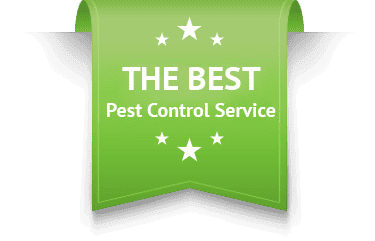Understanding the Threat: Ants at Home
Ants are one of the most common household pests, and their threat to our homes comes in various forms. For homeowners, these tiny insects can become a big problem. Whether they’re causing structural damage by hollowing out wood, contaminating food supplies, or giving a nasty bite, it’s clear that ant infestations are no laughing matter. While DIY solutions may seem appealing, it’s vital to recognize the abilities of professional pest control services when it comes to tackling these resilient critters.
The Diversity of Ant Species and Infestation Signs
Ants are more than just picnic crashers — they are a marvelously diverse group of insects with thousands of identified species, each with their habits and habitats. In your home, a common sign of an ant infestation is finding trails of ants, especially in the kitchen or near food supplies. More overt evidence includes sighting ant nests in walls, floors, or other concealed areas. Beyond these signs, ants can also emit odors when they feel threatened, which can lead to unpleasant smells in the home.
Damage Control: The Risks Associated with Ants
Ants pose a range of threats to both property and health. Carpenter ants, for instance, tunnel through wood, and although they don’t eat it like termites do, the damage caused by their nest-building can become severe if left unchecked. Other species, such as fire ants or bullet ants, can deliver painful or even dangerous bites, especially to those who are allergic.
The Drawbacks of DIY Ant Control
The immediate reaction most homeowners have to an ant sighting is to reach for an over-the-counter pesticide or to try homemade remedies. However, the efficacy of these solutions can be inconsistent at best, and at worst, they can pose risks to your family and pets. The issue with DIY ant control often boils down to three main problems: improper identification of ant species, underestimation of infestation severity, and misapplication of treatment.
Identifying the Enemy: Why Species Matters
Different ant species require different tactics for effective elimination. For example, the approach to eradicating pavement ants will differ significantly from that for Argentine ants. Using the wrong method can be ineffective and can even cause these pests to scatter and infest new areas within your home. Professionals know that accurate identification of the ant species is the first step in devising a successful control strategy.
The Challenge of Underestimation
Ant infestations are often larger and more widespread than they initially appear. For every ant visible in your home, there may be hundreds more living in the walls, under floors, or elsewhere out of sight. A professional, trained eye can gauge the extent of the infestation and take the appropriate measures to tackle it at the source, preventing regrowth.
Misapplications and Their Consequences
Common DIY ant control methods often involve using too much or too little product, and failing to follow label instructions precisely can lead to exposure and other risks. Overapplication of pesticides can result in contamination of surfaces and the air, not to mention unnecessarily exposing your household to toxic chemicals. Conversely, insufficient application means that the nest is not fully eradicated, allowing the problem to persist.
Why Professionals are the Best Ant Exterminators
When it comes to ant control, professional pest control experts bring to the table a combination of experience, expertise, and access to commercial-grade products not available to the average homeowner.
The Expertise and Training of Pest Control Services
Licensed pest control professionals undergo rigorous training to earn their qualifications. They understand the behavior of different ant species and know how to use that knowledge to control infestations effectively. From locating nests to employing the most appropriate tactics, professionals are adept at every step of the process.
Strategic Pest Management and Prevention
Exterminators offer the additional benefit of ongoing pest management. They can provide valuable advice on preventing future infestations, such as sealing cracks and crevices, keeping a clean house, and removing potential food and water sources. Their services extend beyond just killing ants; they aim to ensure that the problem does not reoccur.
Safety First: Family and Environment-Friendly Solutions
Professional pest control companies prioritize the safety of their clients and the environment. They use integrated pest management (IPM) strategies that minimize the use of harsh chemicals, opting for natural or containment-based methods where possible. This approach significantly reduces the risk of accidental poisoning and limits the environmental impact.

